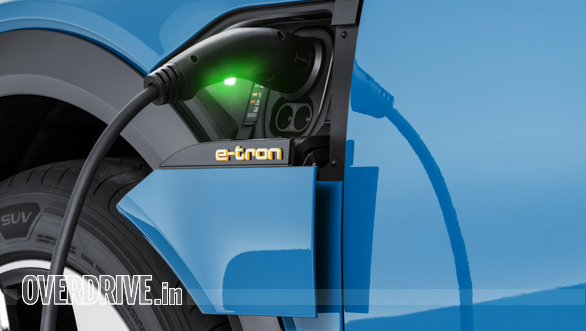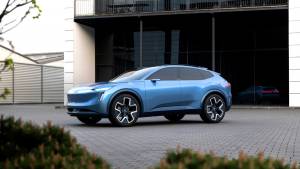2019 Budget: Consistent tax structure at least for five years - Rahil Ansari, Audi India
Interim Finance Minister Piyush Goyal will be announcing the 2019 Union Budget on February 1, 2019. This will be the first session where the budget will be proposed. However, it is at the second session that approvals will be given to the proposed budget, which then becomes official. While every sector in India is eyeing the Union Budget 2018-19 to know about the new developments that will be brought into effect, here is luxury car manufacturer Audi's expectation from Union Budget 2019.

Do you expect taxes and tariffs on automobiles to be reduced to promote the industry and make cars more affordable for a larger base of Indian consumers?
We have always been requesting for a lower and uniform tax structure, especially for the luxury segment. It is quite important to note the Automobile industry is the largest contributor to the growth of the manufacturing sector in India. Ironically, the industry is taxed too heavily (upto 70 per cent), particularly the luxury industry. Currently, auto industry contributes close to 7.1 per cent to the GDP and more than 30 million people are employed (directly & indirectly) by the Auto sector. Especially the luxury Automobile Industry is acting responsibly by heavily investing in 'safe' & 'more efficient eco-friendly vehicles'; it is imperative (and we expect) that Government should support our efforts by reducing the taxes on luxury cars to encourage the industry. In addition to this, we would like to have a consistent tax structure at least for five years, which will give us a good horizon to plan our products and investments effectively.

2. What is the kind of subsidy you want on hybrid and electric vehicles? And the infrastructure to support it?
Ideally we would like these vehicles to have the least taxation on them. The Government is already working positively towards laying down a proper roadmap for such vehicles and we expect them to also consider taxation as a crucial factor. We welcome the Government's move to reduce the customs duty on electric vehicles that are imported in completely knocked down or semi knocked down state to 10-15 per cent, which will make the import of greener vehicles to the country more attractive for manufacturers. However, it also has to be the same for EVs that come as FBU because we have to increase the knowledge and expertise in India on EVs, which will happen only by facilitating imports of FBUs on those technologies. We also expect the registration taxes on Electric Vehicles to be waived off across India (some of the state Government have already done it). In addition, Electric mobility transition needs to be backed by adequate and robust infrastructure for customer ease and practicality.
 Rahil Ansari, Head Audi India
Rahil Ansari, Head Audi India
3. What would you like the difference in the taxation structure in affordable and luxury cars to be?
The taxes on cars have a huge impact on the customer's buying decision whether it is an affordable or a luxury car. Moderation in taxes will lead to more volumes which in turn will create larger tax revenues for the government in the long run.
Related Stories
Top Stories
Latest Videos
Most Popular
- Budget Sportbike Showdown: Kawasaki Ninja 500 vs Aprilia RS 457 vs Yamaha YZF-R3
- 2014 Triumph Daytona 675 vs 2024 Kawasaki ZX6R - A Decade of Evolution in Supersport Motorcycles
- Mumbai-Pune Expressway speed restrictions updated
- Nissan Magnite EZ-Shift review - is the AMT any good?
- Nitin Gadkari states that tax on Hybrids should be reduced to 12 percent in the coming future














